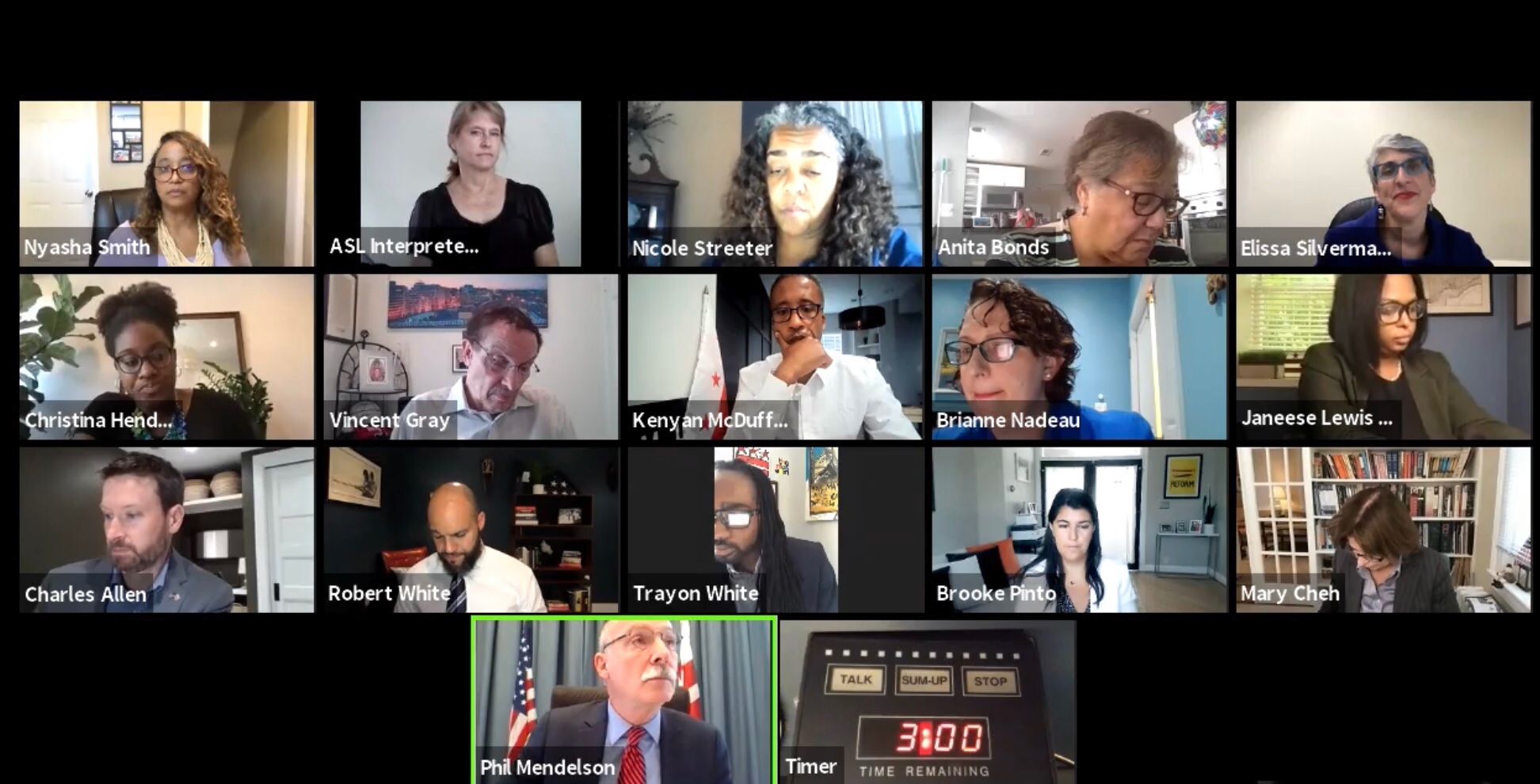Council Passes Comprehensive Plan, Allows Mayor to Extend Public Health Emergency

In its second and last of two necessary votes, the Council unanimously passed the District’s Comprehensive Plan at its most recent Legislative Meeting. While preserving the Mayor’s original draft’s emphasis on housing production and density, the Council added or greatly strengthened language emphasizing affordability, opposing displacement of vulnerable residents, and asserting the critical importance of racial equity.
The draft Comprehensive Plan as received from the Mayor is a massive document, and the Council worked intently to emphasize its key themes and make the changes it felt were essential. The hope is that the next draft of the document (to be undertaken in January of 2025, rather than 2026, at the Council’s insistence) will have the Council’s key themes at its core from Day One, baked into and infused throughout the document from the start, fully fundamental to it, rather than retrofitted in (though mightily) by the Council at the later stages of the document’s development.
To review, the Comprehensive Plan provides a District-wide, neighborhood-by-neighborhood, block-by-block, or even building-by-building plan for DC’s future–what is critical to preserve and what changes must occur. The original version was adopted in 2006, and it was last amended in 2011. The current rewrite process stretches back across three two-year Council Periods.
Back in October of 2019, the Council approved the broad, thematic “framework” element of the Comprehensive Plan after a broad, two-year, extensive, all-hands-on-deck effort to truly rework the document. In April of 2020, Mayor Bowser submitted her proposed draft of the remainder (and the bulk) of the Comprehensive Plan for the Council’s review.
In the intervening time since the Council’s initial action on the Comprehensive Plan framework element, the Council has passed the Racial Equity to Achieve Results (REACH) Act. Among other things, that bill created a Council Office of Racial Equity (CORE) that would explicitly bring a racial equity lens to the Council’s legislative action. CORE found that, as submitted, the Mayor’s draft of the Comprehensive Plan would “exacerbate racial inequities” in the District. The report further stated that while the Council’s initial revisions brought significant racial equity gains to the document, those alone could not entirely repair the impacts of the broader plan.
Additional revisions to the proposed Comprehensive Plan between the Council’s two votes on the document further strengthened its emphasis on affordability and racial equity. For example, in a critical change, the final draft of the Comprehensive Plan includes a new category of “deeply affordable housing,” which means housing that is affordable to those earning 40 percent or less of the Median Family Income. References to the importance of such “deeply affordable housing” were then added throughout the rest of the document.
In other action at the most recent meeting, the Council voted to provide the Mayor with the authority to extend the current COVID public health emergency until July 25 at the latest. While the Mayor is expected to extend the emergency, it is unknown if she will extend it all the way to July 25, initially if at all.
Given that that the current eviction moratorium expires 60 days after the end of the public health emergency, and that the public health emergency eventually will end, the most recent Legislative Meeting included discussion of when and how the eviction moratorium could be fairly and safely phased out. Councilmembers seemed to agree that such a phase-out would be necessary at some point, and that the best and fairest way to end it would be a transition to the federally-funded STAY DC program. STAY DC funds back rent from as early as April 1, 2020, as well as up to three months of future rent, for those who suffered financial hardship under COVID. Because the program aids both landlords and tenants, the application process involves both parties.
The different phases of the federal program involve critical expenditure targets and deadlines—if adequate funds are not paid out by the District to tenants and landlords in time, future phases of federal funding to the District will be canceled. As such, it is essential that the District encourage, and accelerate, public participation in the program. Otherwise, if mandatory federal expenditure targets and deadlines are not met, back rent payment assistance will either need to come out of local DC funds, or tenants and landlords would not receive further relief.
The Council’s new Special Committee on COVID-19 Pandemic Recovery will be holding its first hearing, on the topic of “An Equitable End to Safety Net Protections Put in Place During the COVID-19 Pandemic” just days after the most recent Legislative Meeting. Given that, the Council decided to postpone efforts to design a potential phase-out of the eviction moratorium until after the Special Committee’s hearing, so that any lessons learned from that session could be incorporated into a potential fix that could be offered at the Council’s next Legislative Meeting. This would also provide two more weeks for ongoing improvements to be made to the STAY DC program, as well as two more weeks for the Council and the Mayor to double down on publicizing the STAY DC program’s benefits.
The Council’s next Legislative Meeting will be held June 1.